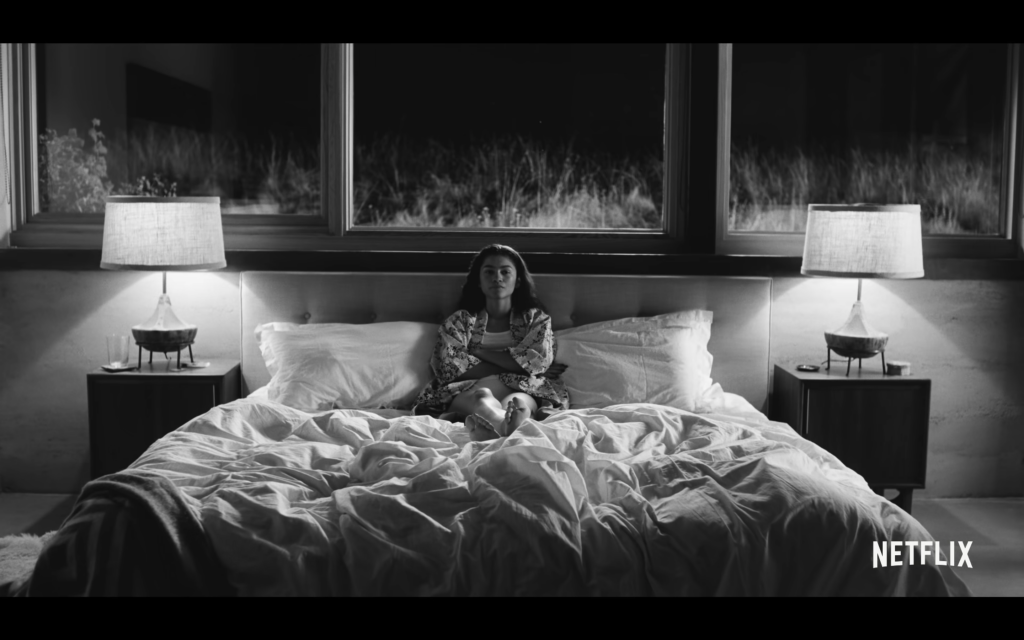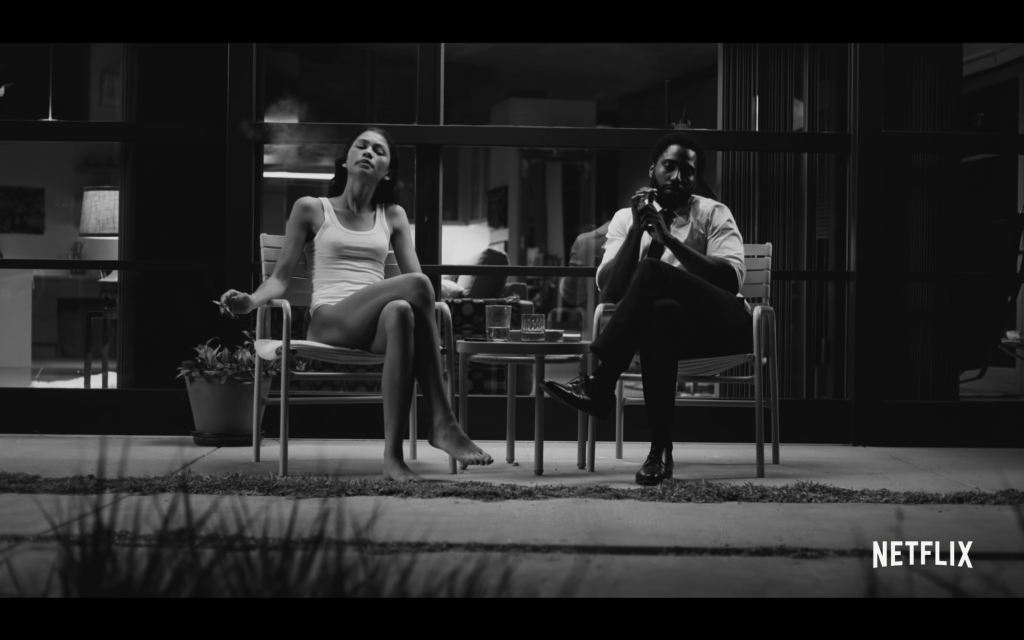‘Malcolm and Marie’ is an exciting, yet lackluster experience
By Ryan Potts

“Euphoria” creator, Sam Levinson, has finally released his Zendaya and John-David Washington led film, “Malcolm and Marie,” on Netflix this past Friday. Despite a highly anticipated release, the black and white 35mm picture was met with lukewarm critic reviews over the last few weeks, entering the scene with a 58% on Rotten Tomatoes and a 59% on Metacritic.
As disappointing as this may sound, the rather shabby critic ratings inadvertently add to the viewing experience of the film, as its storyline centers around a director, Malcolm, and his girlfriend, Marie, coming home the night of his film’s premiere. And guess what — Malcolm’s film also received lukewarm reviews from critics. Sam Levinson is truly a visionary.
For a film with themes revolving around politics in filmmaking, the skewed perspective of critics (according to the filmmakers being critiqued) and the art of film itself, “Malcolm and Marie” actually isn’t a film about any of that. And according to trailer, it’s not a love story either. As the tagline suggests, Levinson’s work is a story about love — in the course of one night, that is. This is quite a kicker given that this is merely the exact same tagline as 2009 “(500) Days of Summer,” also a story about love, but boasts about 500% more story coverage and character development than Malcolm and Marie.

Nonetheless, this does not change the fact that Levinson has crafted a work that is guaranteed to lure you in seconds after its opening credits roll. Washington and Zendaya create a dynamite duo, as their performances burst off of the screen from the first few lines uttered — or in this case, loudly screamed from across their Axel Vervoordt-design inspired luxury kitchen. And bedroom. And the bathroom. And then the living room. And the corridor. And even the backyard … for two hours. Back and forth.
But don’t get me wrong, this does make for good cinema. Not only “good,” cinema, but solid, enjoyable, and fun cinema. There are moments where you ache for the characters, and you want so badly to understand their perspectives and struggles, but never receive the entire answer. And oftentimes, that is what makes a good film; the questions left unanswered for the audience to decide.
However, in this case, it feels as if there’s just something missing to keep that element of the film’s experience substantial. For instance; why is Malcolm so unapologetically cruel? Why does he say the things he does to Marie, the woman he claims to love so dearly? Why does she take it every single time only to bounce back with the same argument for a majority of the film? In these moments, you can feel that there is something beneath the surface, but as each character fails to learn their lesson after every outburst, an emptiness finds its way through the cracks. It’s not until the final moments of the film that we seem to find some leeway. But by that point, is that enough? It depends who you ask, I suppose.
All of this in mind — without spoiling anything specific — none of this removes from the excitement and thrill this picture has to offer. Malcolm and Marie is a polarizing picture, even in my own recollection. I both adore and resent this film for many different reasons. To even attempt to delve into all of it, I’d need a journal and unlimited ink supply. And that, my friends, is the beauty of filmmaking.



























